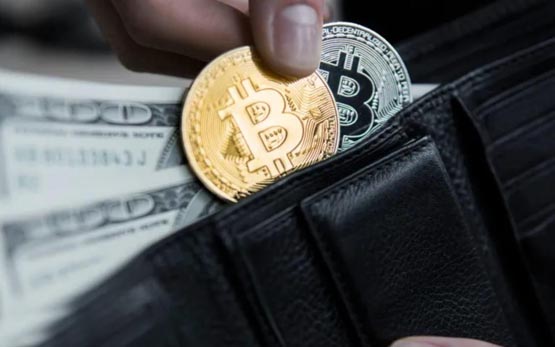What does asset tokenization mean? A layman's introduction to asset tokenization
- WBOYWBOYWBOYWBOYWBOYWBOYWBOYWBOYWBOYWBOYWBOYWBOYWBforward
- 2024-02-20 13:10:571060browse
Asset tokenization will make the financial market more active, fair and transparent, thus bringing great benefits to distributed channels and decentralization. Therefore, asset tokenization has been very popular in recent years. is due to the advantages that users gain after tokenizing their assets, it enables them to store and trade these tokens partially or fully according to their requirements and preferences

What is Asset Tokenization mean?
Asset tokenization refers to the process of using blockchain technology to digitize actual assets and represent these assets by issuing digital tokens. By holding these digital tokens, investors can enjoy a certain percentage of ownership of the asset. The tokenization of real assets will generate corresponding safe and reliable digital tokens whose value is equal to the original assets. The advantage of asset tokenization is that it is easy to trade, easy to keep, and has lower risks. This emerging financial model provides more opportunities for investors and brings new possibilities for the liquidity and transferability of physical assets. Through asset tokenization, investors can allocate assets more flexibly, while also promoting the development and innovation of the asset market.
In simpler terms, it's like a code. However, unlike codes, they cannot be decoded back to their original form. According to TokenEx, tokenization works like this: Tokens replace valuable data from your environment. Simply put, tokenization is a red herring—it turns sensitive data into a random set of numbers, letters, and characters so that it can no longer be identified.
The key to this process is to protect the value of the data and make it available only to the owner. As most things become digital, the Internet has become a potentially risky area. Any information you have can be stolen, even offline data you think is safe. Therefore, the purpose of tokenization is to ensure that your assets are only yours.
What does asset tokenization mean?
As one of the most promising blockchain applications, asset tokenization will bring huge investment opportunities, and it also has very high economic significance. The sharing economy will be a major trend in the future, and the sharing economy The core is light ownership and heavy use rights, and the basis of light ownership and heavy use rights is asset tokenization. Breaking the traditional concept of ownership. Benefits that were once reserved for a few are now open to the general public through asset tokenization. At the same time, many unattainable items have been removed from the shrine and become no longer rare.
Asset tokenization uses blockchain technology to allocate real estate, gold jewelry, famous paintings and other expensive tangible assets into numerous digital units, attracting more market participants and increasing their fluidity. Buyers can become the legitimate owners of their assets by purchasing some digital units. In this way, the owners of an item or property can be ten people, a hundred people, or even a thousand people.
If Bitcoin is changing the pattern of the financial market, then the tokenization of blockchain assets means changing the real world of investors. The attraction of asset tokenization may be that the increase in the number of participants will contribute to an increase in asset prices. The token holder can thus sell his shares at a higher price and obtain a return on investment. Moreover, as a new technology, blockchain’s decentralized encrypted ledger has strong appeal to investors.
The above is the detailed content of What does asset tokenization mean? A layman's introduction to asset tokenization. For more information, please follow other related articles on the PHP Chinese website!
Related articles
See more- What are the application areas of blockchain technology?
- What are the four core technologies of blockchain
- What are the domestic virtual currency platforms for Bitcoin? Top 10 virtual currency trading platforms
- What are the current legal Bitcoin trading platforms? What are the Bitcoin trading software rankings?
- Top 10 Virtual Currency Trading Platform Apps to Buy Virtual Currency Platforms

